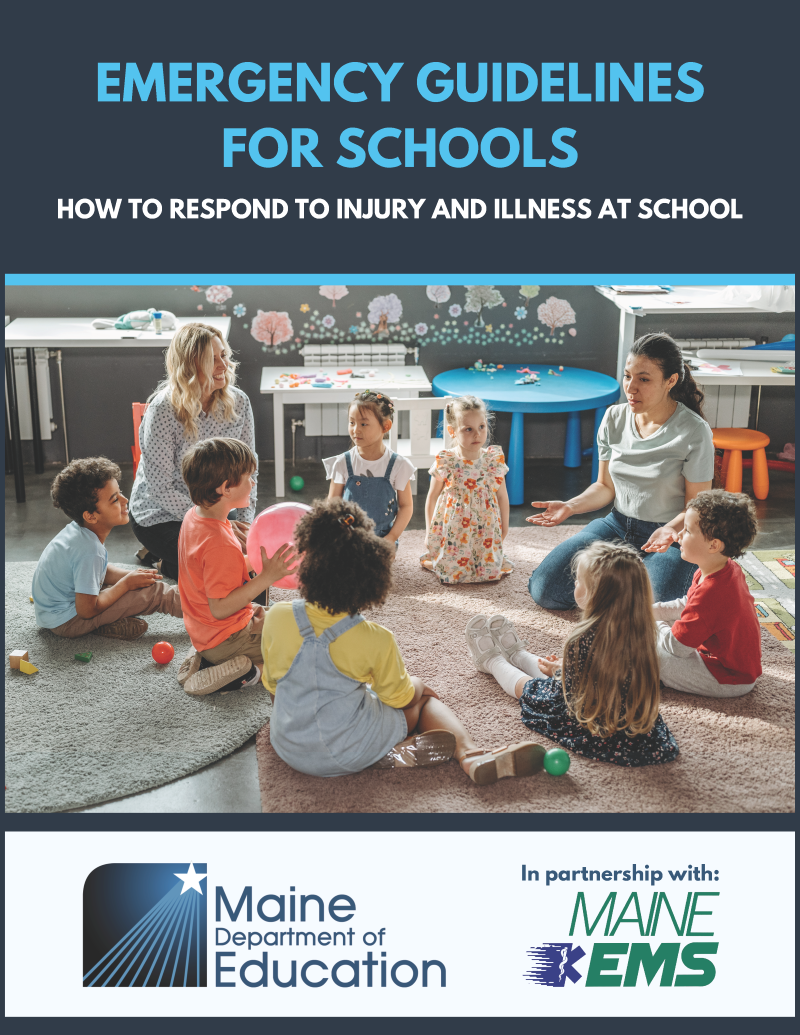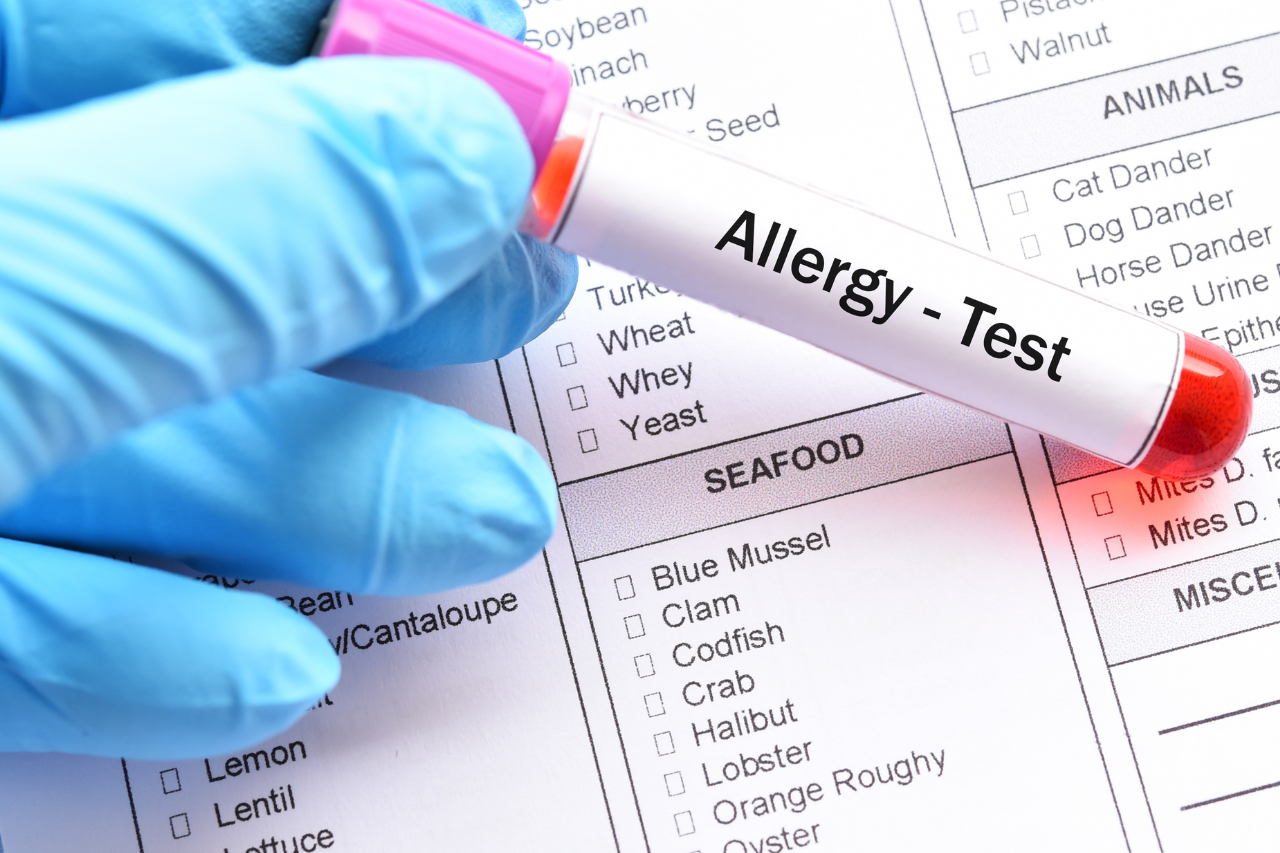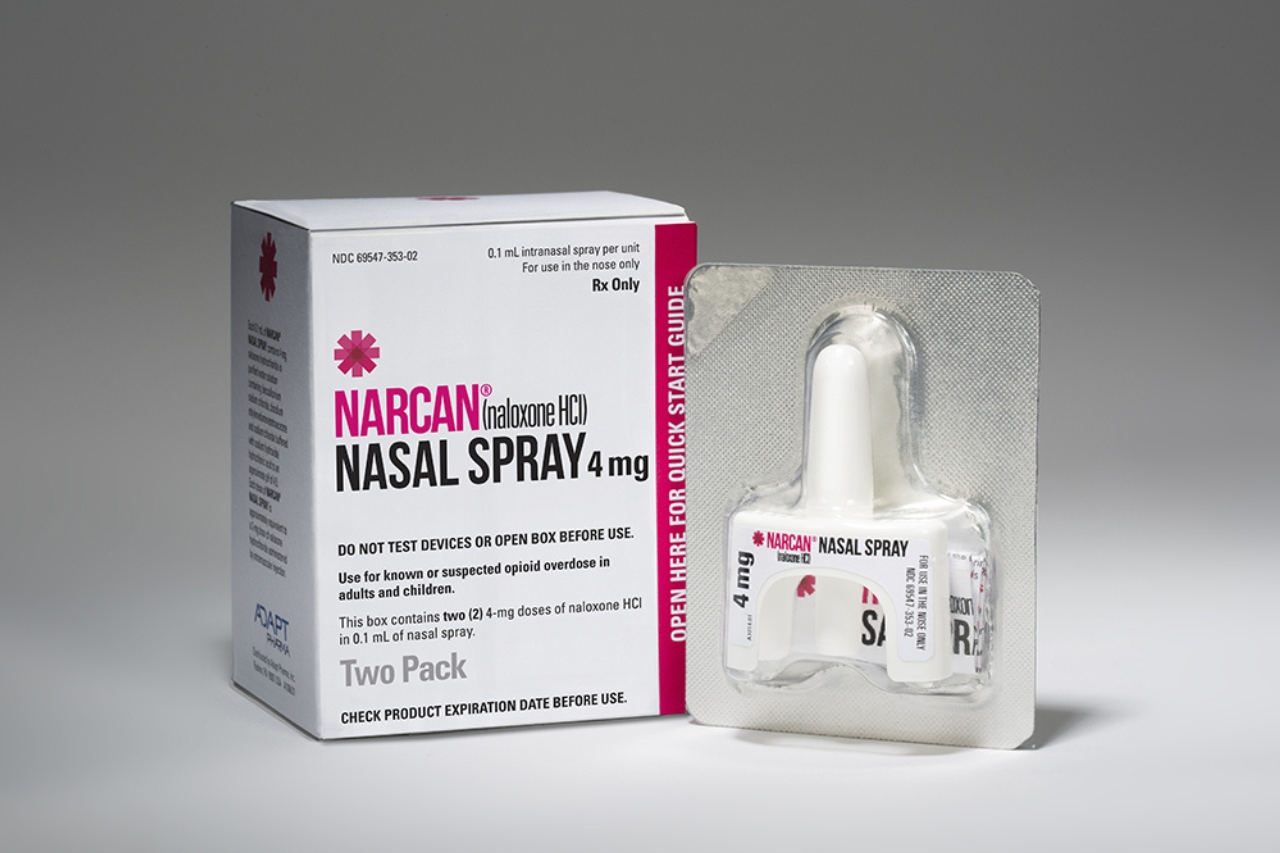
As the health professional in the school setting, the school nurse is an active participant in emergency and disaster planning, and in the development of policy and procedures. Schools must take a proactive approach, to better prepare all staff for unplanned circumstances. School nurses may refer to the compilation of resources below to assist in prioritizing needs, providing continuity of care, and promoting safety in school. The following document is designed to support school staff who are not licensed medical professionals in responding to an emergency. Brief explanations of common emergencies are presented, followed by clear steps to assist in a timely response with confidence.

Emergency Guidelines for Schools
This resource was developed as a partnership by the Maine Department of Education (DOE), Maine Emergency Medical Services (EMS) and the Emergency Medical Services for Children (EMS-C) program for Maine schools and adapted with permission from the Washington State Department of Health and the Washington State Office of Superintendent of Public Instruction. It is designed to be accessible to all unlicensed School Administrative Unit (SAU) staff, assisting them in responding quickly, safely, and effectively when students are injured or become ill at school or during school sponsored activities.
Cardiopulmonary Resuscitation (CPR) & Automated External Defibrillators (AED) & Emergency Action Planning for After-School Activities
Staff who are in a position to provide first-aid to students are recommended to complete an approved first-aid and Cardiopulmonary Resuscitation (CPR) course. Maine Department of Education Rule Chapter 41 requires public schools to offer training to students on CPR and the use of AEDs.
Policies/procedures for a school AED should include:
- Location of AED(s) and related equipment
- Designation of who is responsible for the AED program and identification of the medical director
- Process, schedule, and checklist for inspecting and maintaining equipment and supplies
- Process of communication when AED is used
- Record keeping when AED is used
- Initial and periodic refresher training of staff
Training Resources

Life-threatening Allergy
In accordance with Maine Revised Statutes, Title 20-A, section 6305, subsection 8, the Maine Department of Education shall make available to all schools guidelines for the management of students with life-threatening allergies. The National Association of School Nurses Clinical Practice Guidelines for Students with Allergies and Risk for Anaphylaxis meet such requirements. A Life-threatening Allergy Protocol is required for all schools, and it must be available to the public on the school's website or publicly available through other means.
Resources
Procurement

Opioid Overdose Reversal
As directed by Public Law 2021, Chapter 115, section 1, the Maine Department of Education provides these guidelines and resources for schools that choose to stock emergency medication for a suspected opioid overdose on school grounds. Public Law 2023, Chapter 460, Part A, section 1 requires all public schools to offer training to secondary students in the administration of naloxone hydrochloride in nasal spray form.
Opioid Overdose Management and Naloxone Education: Guidelines for Maine Schools
Additional Training
Resources
- NASN: Naloxone Education for School Nurses Toolkit
- Naloxone Quick Facts for Schools
- Opioid Overdose Protocol Poster
- Readiness and Emergency Management for Schools: Fact Sheet
- Sample Collaborative Practice Agreement
Procurement
Contact
Emily Poland, MPH, RN, NCSN
School Nurse Consultant
Coordinated School Health
Email: Emily.Poland@maine.gov